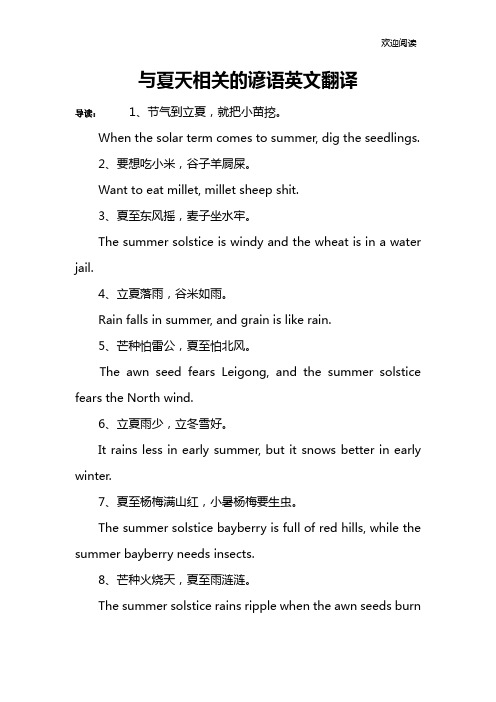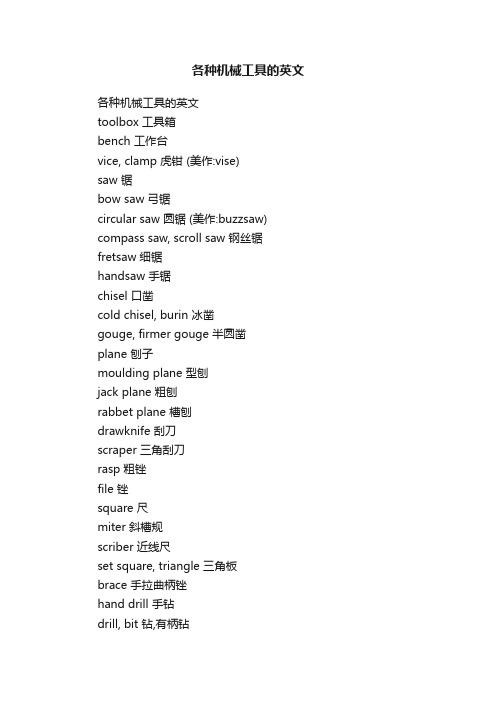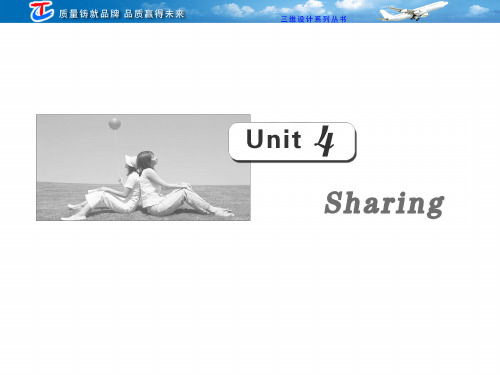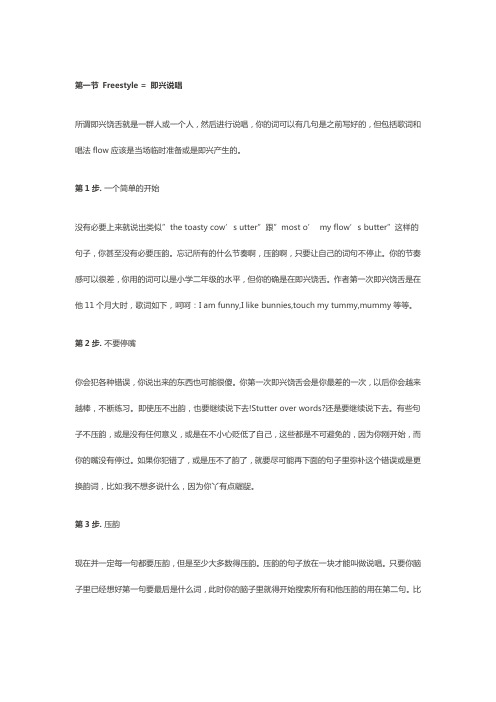weeding
高考英语应用文写作---新闻报道课件

Our school organized a trip to Lanling Farm on July 10th to encourage students to take part in social activities. Nearly all the students donated/contributed clothes, gloves and so on to help the less fortunate through the freezing winter.
类比写作:
某中学最近组织了一次社会实践活动。假设你是该 报英语报小记者,请你写一篇短文,报道这次 活动。内容包括:
1. 时间与地点:7月10日,兰陵a农场;
2.
活动内容:学习种菜和除草、听科学报告、与 专家座谈等
3. 简短评论
注意:1. 词数80字左右
2.可适当增加细节,以使行文连贯。
参考词汇:除草do the weeding.
3. 活动意义 第二段:我们到的时候,受到了当地农民的欢迎。
活动简要概括(时间,地点,人物,事件)+活动目的 When arriving there, we were given a warm welcome by local farmers. When arriving there, we were given a warm welcome by local farmers. Our school organized a trip to Lanling Farm on July 10th to encourage students to take part in social activities. 我们学习种菜与除草,听科学报告,与专家座谈等。 Warm Clothes, Warm Heart 假设你是该报英语报小记者,请你写一篇短文,报道这次活动。
与夏天相关的谚语英文翻译

与夏天相关的谚语英文翻译导读:1、节气到立夏,就把小苗挖。
When the solar term comes to summer, dig the seedlings.2、要想吃小米,谷子羊屙屎。
Want to eat millet, millet sheep shit.3、夏至东风摇,麦子坐水牢。
The summer solstice is windy and the wheat is in a water jail.4、立夏落雨,谷米如雨。
Rain falls in summer, and grain is like rain.5、芒种怕雷公,夏至怕北风。
The awn seed fears Leigong, and the summer solstice fears the North wind.6、立夏雨少,立冬雪好。
It rains less in early summer, but it snows better in early winter.7、夏至杨梅满山红,小暑杨梅要生虫。
The summer solstice bayberry is full of red hills, while the summer bayberry needs insects.8、芒种火烧天,夏至雨涟涟。
The summer solstice rains ripple when the awn seeds burnin the sky.9、大暑小暑,有米也懒煮。
Big summer, small summer, rice is lazy to boil.10、早秧七八九,晚秧四五六。
Early seedling 789, late seedling 456.11、立夏栽稻子,小满种芝麻。
Rice is planted in early summer and sesame is planted in full.12、鹿港一带海域,芒种前后会出现鲨鱼。
weed的用法总结大全

weed的用法总结大全weed的用法你知道多少,今日我给大家带来weed的用法,希望能够关怀到大家,下面我就和大家共享,来欣赏一下吧。
weed的用法总结大全weed的意思n. 杂草,大麻,废物,烟草vt. 给…除杂草,除(草),消除vi. 除草变形:过去式: weeded; 如今分词:weeding; 过去分词:weeded;weed用法weed可以用作动词weed指将杂草从田地或院子里去除出去,即“除杂草”。
引申可指“挑出,除去”。
weed可用作及物动词,也可用作不及物动词。
用作及物动词时,后接名词或代词作宾语。
weed用作动词的用法例句He pulled off his coat and started to weed with us.他脱去上装,开始和我们一起除草。
Tomorrow I have to weed the garden.我明天得给花园除草。
We must weed out the traitors in our midst!我们必需去除我们中间的叛徒!weed用法例句1、Scoop the blanket weed out and use it to line hanging baskets.把那些丝状水藻捞出来,垫在吊篮里。
2、Two and a half years ago I gave up the evil weed.两年半以前我改邪归正,不抽大麻了。
3、His pond has been choked by the fast-growing weed.他的池塘里长满了恣意蔓生的杂草。
weed是什么意思,weed怎么读n.杂草;大麻;废物;烟草vt.给…除杂草;除(草);消除vi.除草转变形式复数weeds第三人称单数weeds过去式weeded过去分词weeded如今分词weeding易混淆的单词Weedweed的用法和例句Bill curran is a professor of weed science at penn state .比尔柯伦(billcurran)是宾夕法尼亚州立大学的杂草科学教授。
各种机械工具的英文

各种机械工具的英文各种机械工具的英文toolbox 工具箱bench 工作台vice, clamp 虎钳 (美作:vise)saw 锯bow saw 弓锯circular saw 圆锯 (美作:buzzsaw) compass saw, scroll saw 钢丝锯fretsaw 细锯handsaw 手锯chisel 口凿cold chisel, burin 冰凿gouge, firmer gouge 半圆凿plane 刨子moulding plane 型刨jack plane 粗刨rabbet plane 槽刨drawknife 刮刀scraper 三角刮刀rasp 粗锉file 锉square 尺miter 斜槽规scriber 近线尺set square, triangle 三角板brace 手拉曲柄锉hand drill 手钻drill, bit 钻,有柄钻gimlet, auger 钻,无柄钻countersink 锥口钻gauge, marking gauge 量规hammer 锤mallet 木槌nail 钉brad 平头钉tack, stud 圆头钉screw 螺丝钉screwdriver 螺丝刀,改锥screw tap 螺丝攻nail puller 拔钉器ruler 尺tape measure 卷尺folding ruler 折尺sandpaper, emery paper 砂纸toolbox 工具箱bench 工作台vice, clamp 虎钳 (美作:vise) saw 锯bow saw 弓锯circular saw 圆锯 (美作:buzzsaw) compass saw, scroll saw 钢丝锯fretsaw 细锯handsaw 手锯chisel 口凿cold chisel, burin 冰凿gouge, firmer gouge 半圆凿plane 刨子moulding plane 型刨jack plane 粗刨rabbet plane 槽刨drawknife 刮刀scraper 三角刮刀rasp 粗锉file 锉square 尺miter 斜槽规scriber 近线尺set square, triangle 三角板brace 手拉曲柄锉hand drill 手钻drill, bit 钻,有柄钻gimlet, auger 钻,无柄钻countersink 锥口钻gauge, marking gauge 量规hammer 锤mallet 木槌nail 钉screwdriver 螺丝刀,改锥screw tap 螺丝攻nail puller 拔钉器ruler 尺tape measure 卷尺folding ruler 折尺sandpaper, emery paper 砂纸stepladder 高凳,折梯trestle 支架trowel 灰泥镘子float 抹子spatula 抹刀,刮铲brush 刷子paintbrush, brush 画刷roller 滚子scissors 剪子spade 锄fork 叉子shovel 铁锹,铲rake 耙roller 滚压器,碌碡dibble 掘穴机wheelbarrow 小车,独轮车watering can 喷壶garden hose, hosepipe 橡胶软管lawnmower 剪草机shears, garden shears 园艺剪刀pruning shears 修枝剪pruning knife 修枝刀sickle 镰刀scythe 钐刀,钐镰trowel 镘weeding hoe 除草耙seed drill 条播机penknife 铅笔刀glass cutter 玻璃刀plumb line 铅垂线spirit level 水平仪pickaxe 鹤嘴锄 (美作:pickax) the axe 斧子 (美作:the ax) sledgehammer 长柄大锤bushhammer 石工锤rammer 撞针anvil, beakiron, bickiron, two-beaked anvil 砧,砧子bellows 弹簧awl 锤子beam compass, trammel 长圆规lever 杠杆tyre lever 轮胎撬杠crank 柄soldering iron 焊铁,烙铁blowlamp 吹嘴,吹炬 (美作:blowtorch)die 冲模diestock 螺丝攻machine tools 工作母机lathe 车床turret lathe 六角车床milling cutter 铣刀milling machine 铣床electric drill, power drill 电钻grinder, crusher 粉碎机riveter 打铆机rolling mill 轧板机press 压床,冲床drop hammer pile hammer, drop hammer 蒸汽汽锤air hammer, pneumatic hammer 气锤pile hammer 打桩机。
第一部分 选修七 Unit4 Sharing

适应于(做)……
使自己适应于…… 调整,调节,适应 作出调整
①It took a while for his eyes to adjust to the blackness. 他用一小会儿的时间来让眼睛适应这个漆黑的地方。 ②This kind of desk can be adjusted to the height you need.Besides,it's not expensive at all.
return for society,he donated much money to a
patient in need,who was operated on last year. 他的父亲经营着一家大公司,在几个城市里运营 着且盈利很高。作为对社会的回报,他为一位去 年动了手术急需帮助的病人捐了一大笔钱。
3. remote adj.
遥远的;偏僻的
Байду номын сангаас
4. adjust vi.&vt. 5. otherwise conj. adv. 6. arrangement n. 7. purchase vt.&n.
调整;(使)适合 否则;不然 用别的方法;其他方面 安排;排列 买;购买 特权;特别优待 安全;保护;保障
opportunity to speak.所有参加辩论的人都有机会发言。
3.privilege n.特权;特别优待 [教材P30原句]It was such a privilege to have spent a
day with Tombe's family.
能与汤比一家度过一天的时间真是莫大的荣幸。 ①Senior students are usually allowed certain privileges. 高年级学生通常享有某些特权。
说唱入门

第一节Freestyle = 即兴说唱所谓即兴饶舌就是一群人或一个人,然后进行说唱,你的词可以有几句是之前写好的,但包括歌词和唱法flow应该是当场临时准备或是即兴产生的。
第1步.一个简单的开始没有必要上来就说出类似”the toasty cow’s utter”跟”most o’my flow’s butter”这样的句子,你甚至没有必要压韵。
忘记所有的什么节奏啊,压韵啊,只要让自己的词句不停止。
你的节奏感可以很差,你用的词可以是小学二年级的水平,但你的确是在即兴饶舌。
作者第一次即兴饶舌是在他11个月大时,歌词如下,呵呵:I am funny,I like bunnies,touch my tummy,mummy等等。
第2步. 不要停嘴你会犯各种错误,你说出来的东西也可能很傻。
你第一次即兴饶舌会是你最差的一次,以后你会越来越棒,不断练习。
即使压不出韵,也要继续说下去!Stutter over words?还是要继续说下去。
有些句子不压韵,或是没有任何意义,或是在不小心贬低了自己,这些都是不可避免的,因为你刚开始,而你的嘴没有停过。
如果你犯错了,或是压不了韵了,就要尽可能再下面的句子里弥补这个错误或是更换韵词,比如:我不想多说什么,因为你丫有点龌龊。
第3步.压韵现在并一定每一句都要压韵,但是至少大多数得压韵。
压韵的句子放在一块才能叫做说唱。
只要你脑子里已经想好第一句要最后是什么词,此时你的脑子里就得开始搜索所有和他压韵的用在第二句。
比如你说了”I’m exhausted from doing summer reading.”你一想到这句将以”reading”结束,那你就应该想到一些能压韵的而且和这个词可能得有点关系的词,比如:meaning,weeding等等。
从当中立刻选一个,然后把第二句朝这个选中的词的方向靠。
比如说你选了”weeding”,你第二句可能就成了:I’m exhausted from doing summer reading,breaking my back digging holes, painting and weeding.如果你选的是”meaning”,那你应该说:I’m exhausted from doing summer reading,my eyes skim the page but always miss the meaning.第4步. 在背景节奏上说唱,或是在任何情况下说唱随便下载一个饶舌音乐的背景音乐来进行即兴饶舌,或是直接在别的饶舌歌手的音乐上进行饶舌,让自己的声音盖过那位歌手的嗓音。
除草种地 英文作文

除草种地英文作文Weeding and Gardening: A Rewarding JourneyGardening is a beloved pastime that offers a multitude of benefits beyond the mere cultivation of plants. It is a journey of nurturing the earth, connecting with nature, and cultivating a sense of personal growth and fulfillment. At the heart of this endeavor lies the essential task of weeding - a seemingly mundane yet profoundly meaningful activity that can transform not only the physical landscape but also the inner landscape of the gardener.Weeding, often perceived as a tedious chore, is in fact a crucial step in the gardening process. It is the act of removing unwanted plants, or weeds, that compete with the desired vegetation for essential resources such as water, nutrients, and sunlight. This seemingly simple task holds a deeper significance, serving as a metaphor for the cultivation of one's own life and personal growth.Just as weeds can choke the life out of a thriving garden, so too can the distractions and obstacles in our lives hinder our ability toflourish. By dedicating time and effort to the methodical removal of these unwanted elements, we engage in a process of self-reflection and personal transformation. Weeding requires patience, focus, and a keen eye to distinguish the desirable plants from the undesirable ones. In much the same way, navigating the complexities of our lives demands that we cultivate these same qualities, enabling us to identify and address the "weeds" that may be hindering our progress.The act of weeding is not merely a physical task but also a mental and emotional one. As we bend down, pull, and discard the unwanted vegetation, we engage in a meditative process that allows us to let go of the unnecessary and focus on what truly matters. This act of clearing the way for the desired plants to thrive is akin to the process of clearing our minds and lives of the clutter that can so easily accumulate.Moreover, the satisfaction that comes from a well-tended garden is not solely derived from the end result but also from the journey itself. The rhythmic motion of weeding, the feel of the soil between our fingers, and the sense of accomplishment that comes from a job well done all contribute to a profound sense of fulfillment. This experience can be extrapolated to our personal lives, where the actof addressing and overcoming challenges can lead to a deeper appreciation for the journey and a greater sense of self-mastery.Beyond the individual benefits, weeding and gardening also have a broader impact on our communities and the environment. By cultivating our own gardens, we contribute to the overall health and sustainability of our local ecosystems. The removal of invasive species and the introduction of native plants can help to restore the natural balance and provide vital habitats for diverse flora and fauna. In this way, our personal gardening endeavors become part of a larger, collective effort to steward the land and safeguard the delicate balance of our natural world.Furthermore, the act of gardening can foster a sense of community and social connection. Sharing knowledge, exchanging seeds and cuttings, and collaborating on community garden projects can bring people together, creating a shared sense of purpose and a deeper appreciation for the natural world. These connections can extend beyond the garden, as we learn from one another and find common ground in our shared experiences of nurturing the earth.In conclusion, the act of weeding and gardening is a profoundly meaningful and multifaceted endeavor. It is a journey of personal growth, environmental stewardship, and community building. By embracing the challenges and joys of this practice, we can cultivate a deeper understanding of ourselves, our relationship with the natural world, and our role in shaping the future of our communities. Whether tending to a small backyard plot or a community garden,the act of weeding and gardening is a testament to the power of human connection, resilience, and the transformative potential of our own hands.。
常用农业英语词汇

常用农业英语词汇land, soil 土壤arable land, tilled land 耕地dry soil 旱田fertile soil 沃土, 肥沃的土壤humus 腐殖质irrigable land 水浇地lean soil, poor soil 贫瘠土壤wasteland, barren land 荒地grass 草grassland 草地meadow 草甸prairie 大草原pasture land 牧场to lie fallow 休闲fallow 休闲地stubble, stubble field 亩茬地straw, hay 稿杆rural population 农村人口rural exodus 农村迁徙land reform, agrarian reform 土地改革mechanization of farming 农业机械化mechanized farming 机械化耕作farm 农场cattle farm 奶牛场ranch 大农场,牧场hacienda 庄园holding 田产plot, parcel, lot 地块cooperative farm 合作农场collective farm 集体农场country, countryside 农村countryman 农民,农夫countrywoman 农民,农妇agronomist 农学家latifundium, large landed estate 大农场主farmer 农户producer 农业工人settle 佃户landowner 地主,土地拥有者absentee landlord 外居地主smallholder, small farmer 小农rancher 牧场主tenant farmer, leaseholder 土地租用人sharecropper 佃农ploughman 农夫,犁田者farm labourers 农场工人,农业工人 (美作:farm laborers) farm hand 农场短工cattle farmer 牧场工人cowherd, cowboy 牛仔shepherd 牧人fruit grower 果农vinegrower 葡萄栽植者vintager 采葡萄者farming, husbandry 农业animal husbandry, animal breeding 畜牧业dairy farming 乳品业,乳牛业horticulture 园艺market gardening 商品蔬菜种植业fruit growing 果树栽培vinegrowing, viticulture 葡萄栽培olive growing 油橄榄栽培arboriculture 树艺学silviculture 造林学agricultural products, farm products 农产品foodstuffs 食品dairy produce, dairy products 乳制品dairy industry 乳品加工业crop year, farming year 农事年season 季节agricultural, commodities market 农业市场livestock 牲畜farmhouse 农舍pasture 牧场overalls 稻草人haystacks 大干草垛silo 筒仓granary 谷仓outbuildings 附属建筑barn, shed 棚granary, grain store 粮仓chicken house 鸡场windmill 磨坊implement shed 农具房grain silo 谷粮仓hayloft 干草棚stable 畜栏litter 褥草cowshed 牛棚corral 围栏dairy barn 挤奶厂pigpen 猪圈 (美作:hog pen)sheep pen, fold 羊圈rabbit hutch 兔窝hen house, henroost 鸡舍incubator, brooder 孵卵室laying house 产蛋室watering trough, drinking trough 饮水器piglet 猪仔boar 公猪feeding trough, feed trough 喂食器feeding rack, manger, crib 饲槽greenhouse, glasshouse 温室nursery 苗圃seedbed 苗床threshing floor 打谷场manure heap, dung heap 麦堆field 田地corn field 麦地furrow 沟,渠ridge 垅clod 土块terrace 梯田haystack, hayrick 草垛shock 禾捆堆sheaf 禾捆plantation 栽植cabbage patch 圆白菜地tomato patch 土豆地vineyard 葡萄园kitchen garden 菜园market garden 商品菜园orchard 果园farmhouse 农舍pasture 牧场overalls 稻草人haystacks 大干草垛silo 筒仓granary 谷仓outbuildings 附属建筑barn, shed 棚granary, grain store 粮仓chicken house 鸡场windmill 磨坊implement shed 农具房grain silo 谷粮仓hayloft 干草棚stable 畜栏litter 褥草cowshed 牛棚corral 围栏dairy barn 挤奶厂pigpen 猪圈 (美作:hog pen)sheep pen, fold 羊圈rabbit hutch 兔窝hen house, henroost 鸡舍incubator, brooder 孵卵室laying house 产蛋室watering trough, drinking trough 饮水器piglet 猪仔boar 公猪feeding trough, feed trough 喂食器feeding rack, manger, crib 饲槽greenhouse, glasshouse 温室nursery 苗圃seedbed 苗床threshing floor 打谷场manure heap, dung heap 麦堆field 田地corn field 麦地furrow 沟,渠ridge 垅clod 土块terrace 梯田haystack, hayrick 草垛shock 禾捆堆sheaf 禾捆plantation 栽植cabbage patch 圆白菜地tomato patch 土豆地vineyard 葡萄园kitchen garden 菜园market garden 商品菜园orchard 果园shovel 铁锹spade 铲hoe 锄weeding hoe 除草锄mechanical hoe 动力锄rake 搂草机fork 叉子hayfork, pitchfork 干草叉scythe 大钐刀sickle 镰刀flail 连枷billhook, brushhook 钩镰(field)roller 滚压器plough 犁 (美作:plow)ridging plough, ridger 起垄犁weeding machine 除草机weeder, weeding hook 除草锄weeding fork 除草叉disc harrow 圆盘耙clod crusher 碎土块机tractor 拖拉机sprinkler 喷水器,人工降雨器manure spreader 撒肥机fertilizer distributor 化肥撒肥机rotovator 中耕机 (美作:cultivator) planter 种植机disk harrow 圆盘耙cotton picker 摘棉机potato harvester 马铃薯收割机seeder, broadcaster 播种机seed drill, drilling machine 条播机mower 割草机(power)mower 动力割草机harvester, reaper 收割机combine (harvester) 联合收割机binder 捆束机bale loader 装草机harvesting machinery 收割机械threshing machine, thresher 脱粒机winnower, winnowing machine 风选机sheafer 束禾机grader, sorter 分类机,分级机sieve 细筛winepress 葡萄榨汁机milking machine 挤奶机churn 搅乳器cereals, grain 谷物coarse grain 谷粒rye 黑麦barley 大麦oats 燕麦millet 粟,黍sorghum 高粱bran 麸,糠flour, meal 粗磨谷粉wheat 小麦maize 玉米 (美作:corn)maize cob 玉米棒子 (美作:corn cob) rice 稻buckwheat 荞麦tea 茶coffee 咖啡cocoa 可可树coca 古柯tobacco 烟草hop 蛇麻,啤酒花tuber crops 块茎作物sugar beet 糖用甜菜potato 马铃薯sweet potato 甘薯vegetables 蔬菜carrot 胡萝卜cassava, manioc 木薯turnip 芜菁yam 山药,薯蓣pulses, leguminous plants 豆类植物bean 菜豆pea 豌豆chick-pea 鹰嘴豆lentil 小扁豆soya bean 大豆 (美作:soybean) forage plants 饲料食物fodder grain 饲用谷物clover 三叶草lucern, lucerne 苜蓿 (美作:alfalfa) textile plants 纤维植物cotton 棉,草棉flax 亚麻hemp 大麻American agave 龙舌兰sisal 剑麻,西沙尔麻kapok tree 木棉树jute 黄麻Manila hemp 马尼拉麻raffia 酒椰yucca 丝兰oil plants 油料植物sunflower 向日葵groundnut, peanut 落花生olive 油橄榄olive tree 油橄榄树sesame 芝麻castor oil plant 蓖麻rape seed 油菜籽rubber tree 橡胶树resin plant 树脂植物mangrove 红树fruits 水果fruit tree 果树grapevine 葡萄藤grape 葡萄turkey 火鸡chicken 鸡piglet 猪仔sow 母猪boar 公猪sheep 绵羊ram 公羊ewe 母羊lamb 羊羔mutton 羊肉colt 雄马驹filly 雌马驹horse 马cow 奶牛bull 公牛calf 水牛tomato 番茄,西红柿asparagus 芦笋cucumber 黄瓜aubergine, eggplant 茄子bean 菜豆beet, beetroot 甜菜pepper 胡椒pimiento 甜椒potato 马铃薯carrot 胡萝卜cauliflower 菜花,花椰菜pumpkin 西葫芦broad bean 蚕豆cabbage 圆白菜,卷心菜chilli 辣椒garlic 蒜chive 葱fennel 茴香cos lettuce 莴苣marrow 嫩葫芦melon 香瓜,甜瓜mushroom, celery 芹菜onion 韭leek 韭菜radish 萝卜tarragon 狭叶青蒿thyme 百里香mushroom 蘑菇artichoke 洋蓟broccoli, brocoli 硬花甘蓝Brussels sprouts 芽甘蓝caper 刺山柑,老鼠瓜cardoon 刺菜蓟chervil 雪维菜,细叶芹chick-pea 鹰嘴豆chicory 苣荬菜cress 水田芥cumin, cummin 孜然芹,枯茗dandelion 蒲公英French bean 法国菜豆gherkin 嫩黄瓜horseradish 辣根Jerusalem artichoke 洋姜,鬼子姜kale 无头甘蓝kohlrabi 甘蓝laurel 月桂lentil 兵豆lettuce 莴苣lupin 羽扇豆 (美作:lupine) parsley 欧芹parsnip 欧防风pea 豌豆rhubarb 大黄salsify 婆罗门参sorrel 掌叶大黄truffle 块菌turnip 芜菁watercress 豆瓣菜。
- 1、下载文档前请自行甄别文档内容的完整性,平台不提供额外的编辑、内容补充、找答案等附加服务。
- 2、"仅部分预览"的文档,不可在线预览部分如存在完整性等问题,可反馈申请退款(可完整预览的文档不适用该条件!)。
- 3、如文档侵犯您的权益,请联系客服反馈,我们会尽快为您处理(人工客服工作时间:9:00-18:30)。
Good afternoon, everyone. The subject of our talk is wedding. Wedding is one of our Chinese tradition cultures. It has a long history.
Now let see some clothes about Chinese wedding. The bridegroom will wear Zhuangyuan Gown(状元袍)and black gauze cap. Like the picture on the left. And the bride will wear the chaplet and official robes(凤冠霞帔). Like the picture on the right. The chaplet shape always made like legendary phoenix bird. On the wedding, bride will also wear a pair of red shoes and cover a red cloth on her head. And the pattern on the shoes and clothes are mandarin duck、plum blossom、lotus or other emblems of good augury. Now let me tell you some thing about Chinese wedding cultures. Before wedding ceremony, the bridegroom should give courtesy money to the bride's family to thank for the girl’s parents’the love and care from childhood. Besides the courtesy money, there are other betrothal gifts. There are "dragon & phoenix" cakes(喜饼)、sea food、wine、coconut and so on. And all of these things should be in double. It means good things should be in pairs.
Some days before wedding, the parents will move the bed to a suitable place. Then a women who has have children and grandchildren will make the bed and put various kinds of wedding fruits、dried lichee、ormosia and mung bean. After making the bed, they will stop everyone to sit on it. But they will allow the baby to play on the bed. It means be prosper by becoming wealthy and by adding members to the family.
Now let me tell you wedding ceremony flow on that day. Before the bridegroom go to the bride’s home, he will worship his ancestors. After that bridegroom will goes to meet the bride. And the number of the people who go with the bridegroom should even number. And during the way, they should setting off firecrackers in order to celebrate.
When the bridegroom arrived at bride’s home, he should give the bouquet to bride. But the friend of bride will block him to meet bride. And the he should promise the bride’s family’s request. Then he can enter into the bride’s home. After that, the newlywed will worship ancestors. And the bride’s father will cover the red cloth on the bride’s head.
The elder woman will hold the bamboo screen or black umbrella to see the bride off, until they arriver the sedan chair, because the bride is important people than everyone on that day.
After a while of the bride get on the sedan chair, the bride’s family will throw a bowl of water and rice. It means that their daughter likes the spilled water and they can’t interfere anything about their daughter again. And wish her everything goes well and have a happy life in the future. And they also should setting off firecrackers on the way to the bridegroom’s home.
When the bride arrived, a child will take two oranges to the newlywed. The bride should touch the oranges and give the child a red paper. And the bride should decorticate the orange’s skin in the evening by herself. That
means longevity.
Then one of the bridegroom’s elder will take the bride to the hall and he also hold a bamboo screen on the head of bride.
Before the newlywed go into the house, they should stride over the fire-pan to Wash away bad luck and ominous. Then the newlywed will perform the formal wedding ceremony and present the parents with a cup of hot tea. And the parents will give jewelry to bride as a gift. And the bride should wear it at the scene to show the thanks. Then the newlywed will present tea to other elder of bridegroom’s family. Then the newlywed will worship ancestors.
After the above things, the newlywed will go to the ceremony.
At present many people will wear bridal veil and Western style clothes instead of Zhuangyuan Gown(状元袍)and the chaplet and official robes (凤冠霞帔). And use the car to instead of sedan chair. But the Chinese tradition wedding cultures still live. And more and more people start to have a Chinese wedding. It also becomes more popular especially in foreigners.
That brings me to the end of our presentation. Thank you for your listening.
y.。
